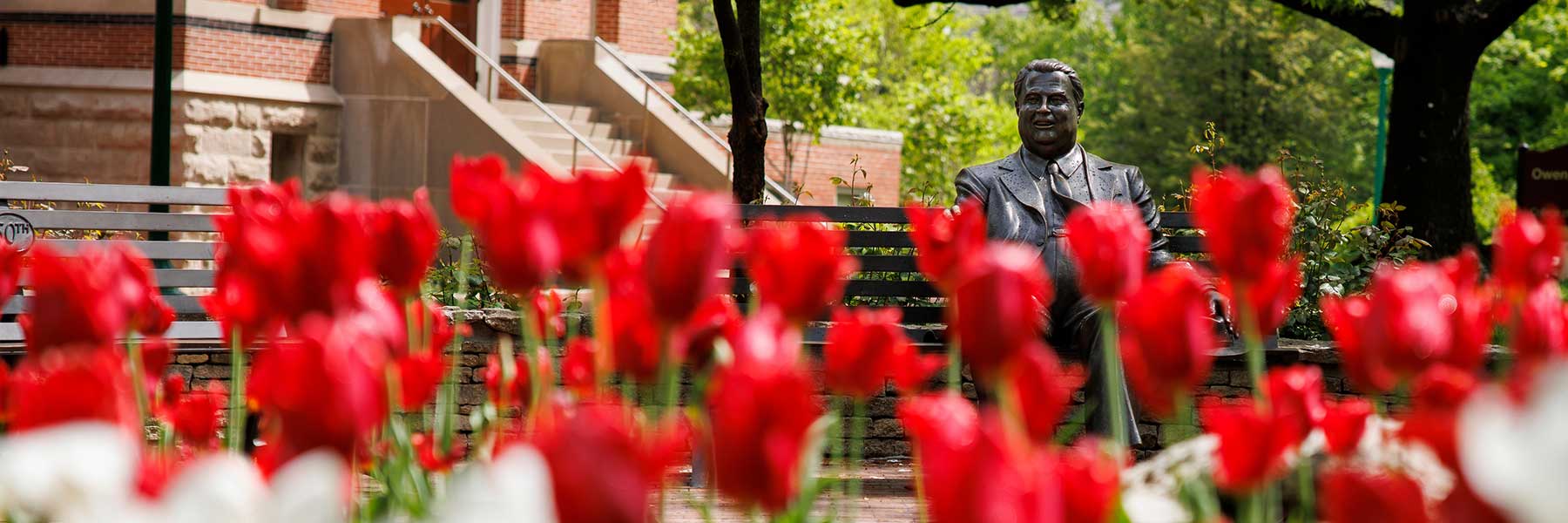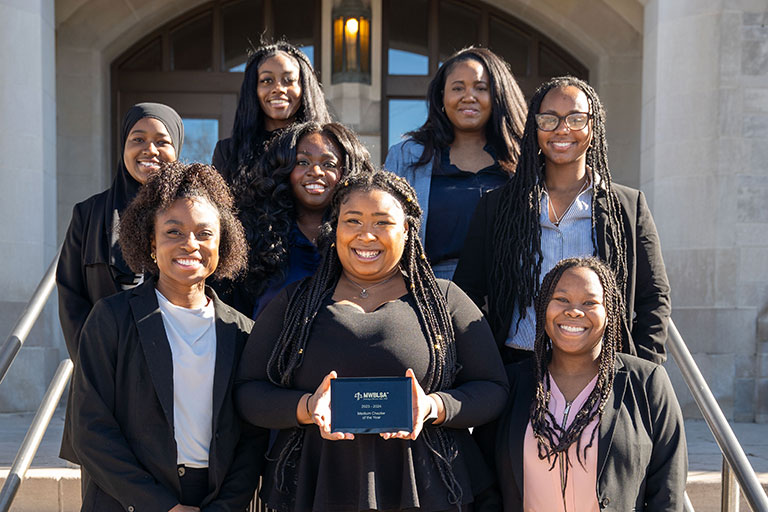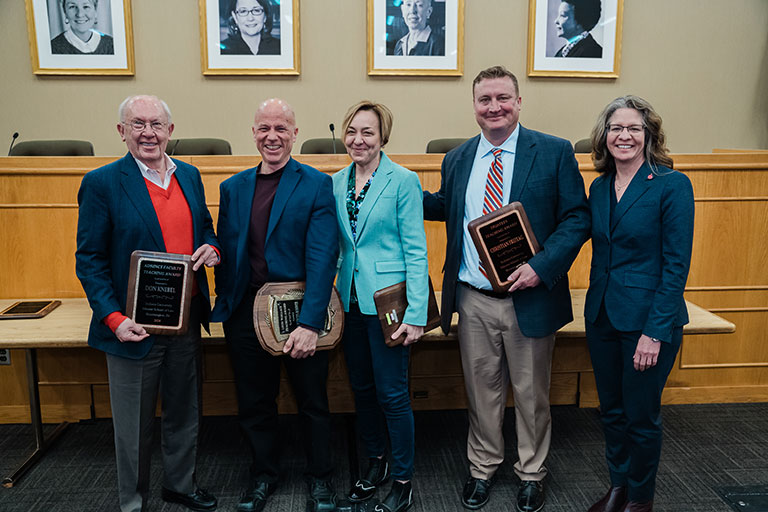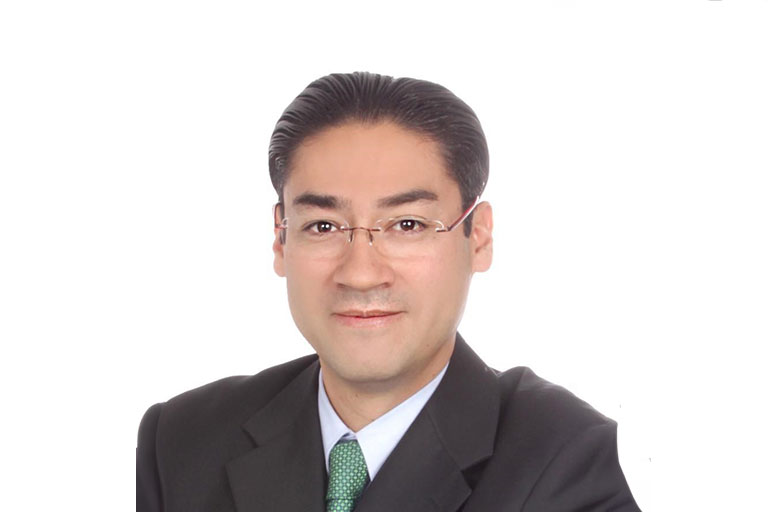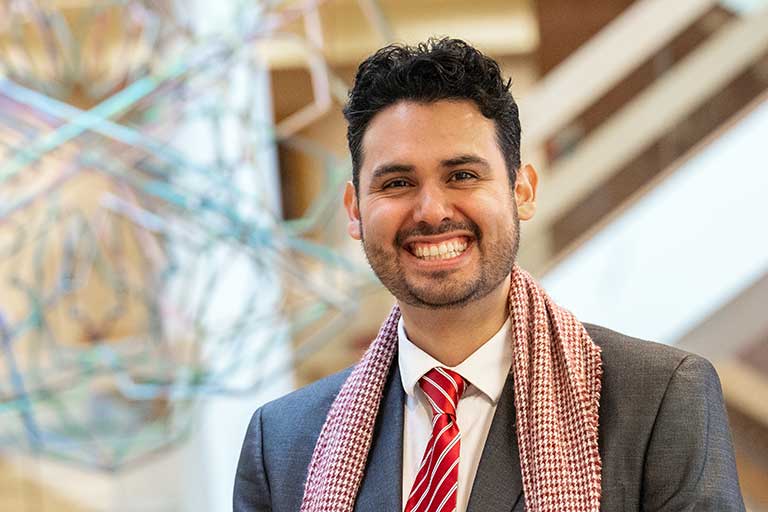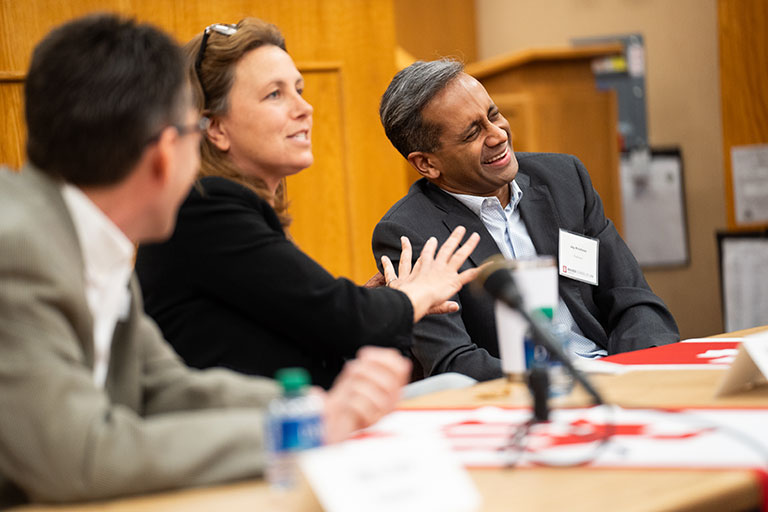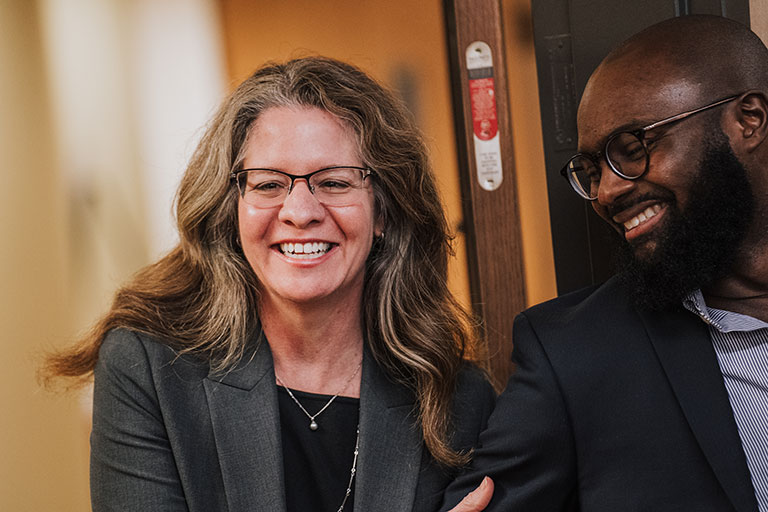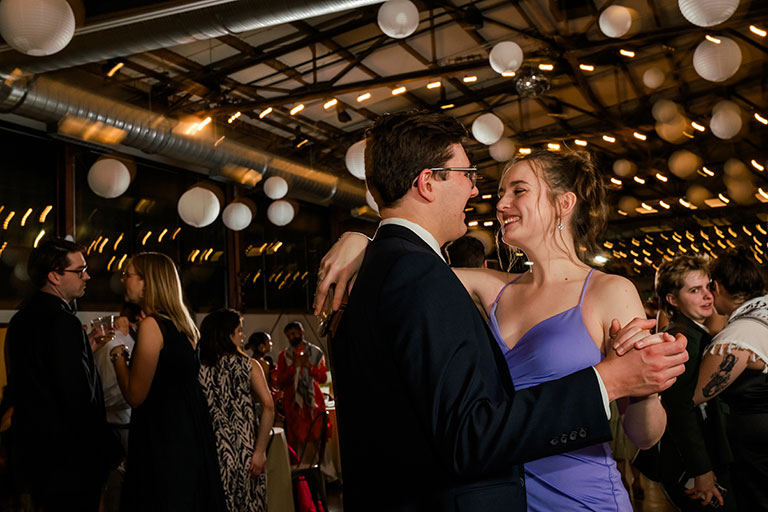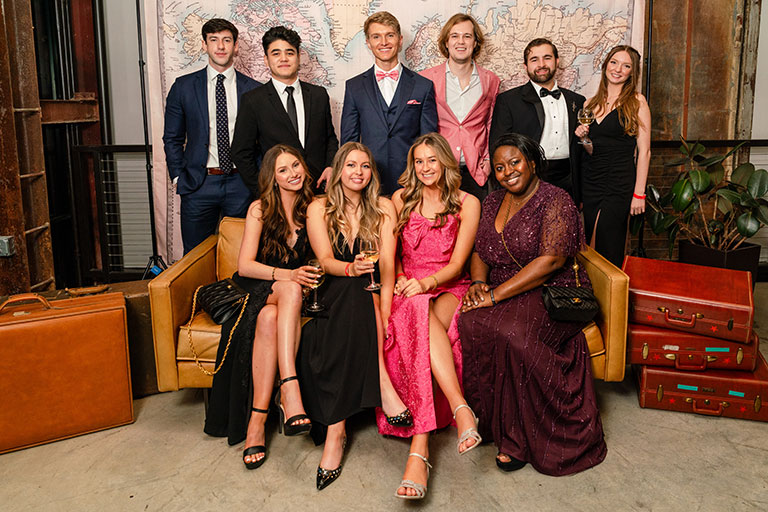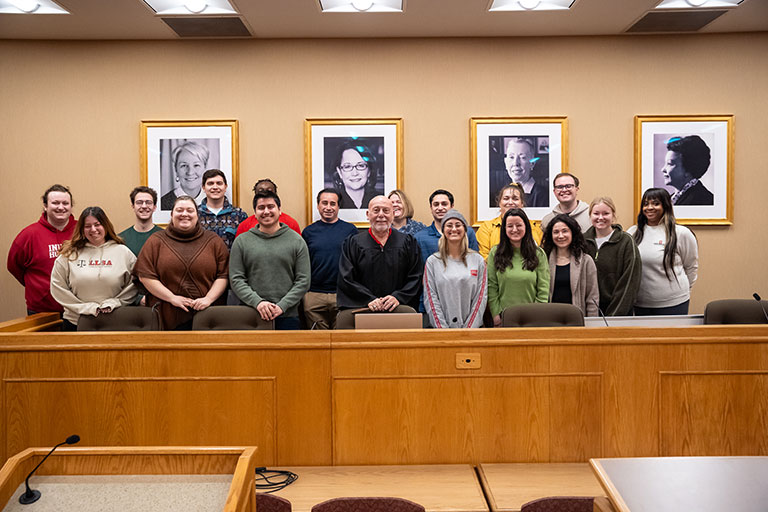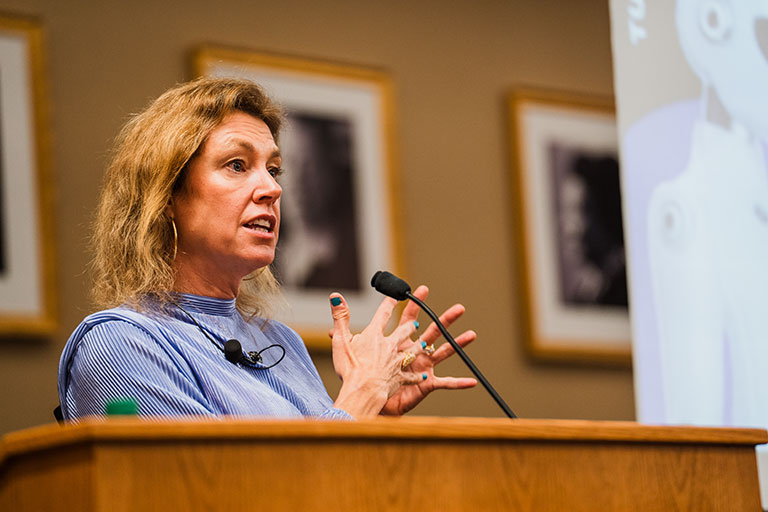Faculty news
Read In the media for faculty quotes and op-eds in state and national media.
- On February 1, 2024, Amy Applegate and two colleagues presented "An Efficient Family Violence Screening Tool for Mediators: the MASIC-S" at a webinar to hundreds of Canadian attorneys, mediators, and other family law professionals across all of Canada.
- John Applegate is serving on a Government Accountability Office Experts Panel on the management of high-level radioactive waste. The panel aims to provide GAO, and thus Congress, with realistic options for handling a problem that has eluded good solutions.
- Rob Fischman was the lead author on a Science Insights Policy Forum article in conjunction with the 50th anniversary of the Endangered Species Act. Science is the world's third-most influential scholarly journal based on Google Scholar citations.
- Charlie Geyh's "Judicial Ethics and Identity" has been published in the Georgetown Journal of Legal Ethics; the 7th edition of his coauthored treatise “Understanding Civil Procedure” has likewise been published, and his article “To Legitimacy and Beyond: A Reform Agenda to Restore Public Confidence in the Federal Courts” is in page proofs at Law & Contemporary Problems.
- Sarah Jane Hughes published "Form Without Shape, Shades Without Color: Developments in the Law Affecting Electronic Payments and Financial Services" with Stephen T. Middlebrook and Tom Kierner '15
- Asaf Lubin’s “Selling Surveillance” was accepted for publication in the Ohio State Law Journal. The paper analyzes the functions and risks of the spyware industry and examines possibilities for future international regulation. Lubin and Marinotti’s “Cyber Vigilantes” was selected for presentation at the Privacy Law Scholars Conferences at Georgetown Law in May.
- Jody Madeira attended two days of intensive legislative work on HR451, her fertility fraud bill, along with several victims in the U.S. House and Senate. The bill will be carried in the Senate by a bipartisan team led by Senators Britt (R) and Booker (D).
- João Marinotti’s “The Private Law of Self-Help” was accepted for publication in the UC Davis Law Review. The paper proposes an intentional framework of self-help that may be used in ex ante decision-making. In doing so, it displaces the descriptively, and prescriptively lacking, extensional ex post method of determining the lawfulness of particular self-help measures.
- In January in Melbourne, Australia, Donna Nagy presented Beyond Fiduciaries—U.S. Insider Trading Law and a Broader Embrace of the Common Law at a conference on “The History of Business Law and Governance” hosted by Monash University’s Centre for Commercial Law and Regulatory Studies. In February in Sydney, with her co-author Prof. Juliette Overland, they presented their paper on “Tippers, Tippees, Insiders, and Outsiders: Examining the Insider Trading Laws of the United States and Australia in Context” at the Conference of the Society of Corporate Law Academics hosted by the University of New South Wales.
- Steve Sanders served as a panelist at the Forum on SB202 for the Indiana Conference of the AAUP (March 26) and will serve as a panelist at next month’s IU College of Arts & Sciences’ Free Speech on Campus event.
- The Center for Intellectual Property Research honored five adjunct faculty members for their outstanding contributions to our intellectual property students. Honored were: Brad Maurer '99, Don Knebel, Greg Castanias '90, Jessica VanDalen '10 and Robert Meitus '00.
- The Wall Street Journal spoke with 3L Sydney Schnur and Prof. Scott Shackelford for an in-depth article on cybersecurity clinics March 17.
- Tim Waters authored an op-ed, "Genocide in my classroom: Incitement is a crime, but I teach my students that there’s a clear distinction between ideas and violence," in the Wall Street Journal.
Class notes
Keep up with your classmates and submit your own news at our class notes page.
Back to Table of Contents


